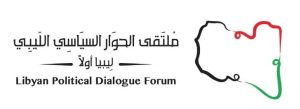By Sami Zaptia.
London, 16 January 2021:
Seventy percent of the Libyan Political Dialogue Forum (LPDF) roadmap has been accomplished, and ‘‘significant progress’’ has been made in the ongoing Advisory Committee talks, UNSMIL Spokesperson Jean Alam said during a press briefing yesterday on the ongoing LPDF Advisory Committee talks taking place in Geneva.
In what sounded like a farewell roundup of UNSMIL progress made specifically under Acting head Stephanie Williams in view of news of the appointment of Ghassan Salame’s successor, Jan Kubic, Alam gave a roundup of the progress achieved so far by UNSMIL in the other various tracks too.
Here is his full briefing:
- Meeting in Geneva of the LPDF’s Advisory Committee, facilitated by Stephanie Williams, Acting Special Representative of the Secretary-General for Libya
- As you know much has been accomplished during the meeting of the Libyan Political Dialogue Forum (LPDF), which took place in Tunisian between 9 and 15 November, where Libyans agreed on a roadmap for the preparatory period leading to the national election; eligibility criteria for the unified executive authority positions; the prerogatives of the unified executive authority; and most importantly, setting a date for the elections on 24 December 2021.
This unwavering achievement, this date, the date of the national elections, is our top priority.
- With all those accomplishments – 70% of the roadmap has been accomplished, the LPDF could not make progress on the selection mechanism of the unified executive authority. Since the meeting in Tunisia the LPDF convened seven virtual meetings on this matter, without being able to move forward on the selection mechanism. This is why the Advisory Committee, that is meeting here [in Geneva] this week was formed, to come up with concrete recommendations about the formation of an interim unified executive authority to be presented to the LPDF to decide upon.
- And I am pleased to inform you that there has been significant progress made in the ongoing talks [of the ongoing Advisory Committee] on some major blockages and we hope that shortly we will be able to narrow down the major differences and reach near consensus on many of the contentious issues plaguing the selection mechanism proposals.
- Positive developments and progress made in various tracks
- In addition to the political track, there has been significant and very encouraging progress in the military track since the signing of ceasefire agreement here in Geneva by the 5+5 Joint Military Commission (JMC) on 23 October 2020. This includes the recent exchanges of detainees conducted under the JMC’s supervision, as part of wider confidence-building measures; the resumption of flights to all parts of Libya; the full resumption of oil production and export; as well as the proposed unification and restructuring of the Petroleum Facilities Guards. In addition to the ongoing serious talks on the opening of the coastal road between Misrata and Sirte, which we hope will take place very soon.
- We have also seen promising developments in the Economic track, including the long—awaited meeting of the Board of Directors of the Central Bank of Libya, which resulted in the unification of the exchange rate. The CBL also agreed to forge a plan to address the banking crisis in a manner that rebuilds confidence in the banking sector and ensures nationwide access to liquidity. The recent meeting between the ministries of finance was an important effort to unify the budget and allocate sufficient funding to improve services and rebuild Libya’s deteriorating infrastructure, particularly the electrical grid. All of these reforms are steps that will bring national institutions together to work in establishing a more durable and equitable economic arrangement.








